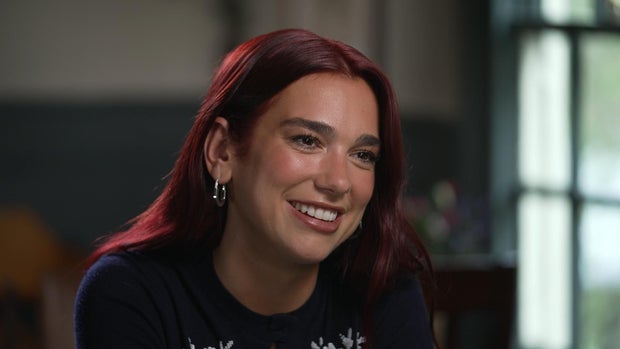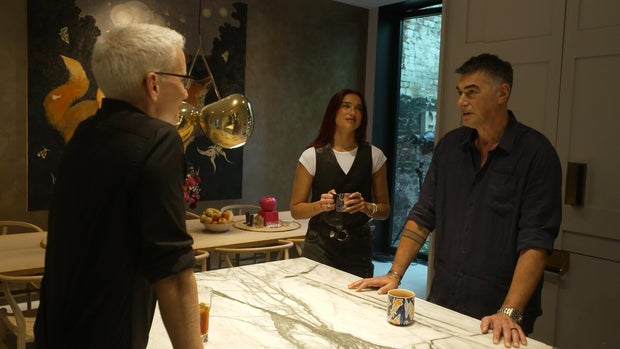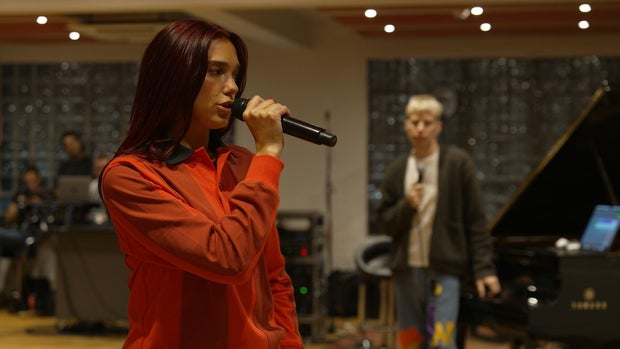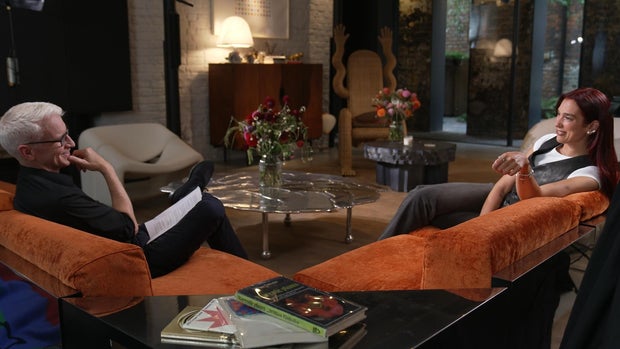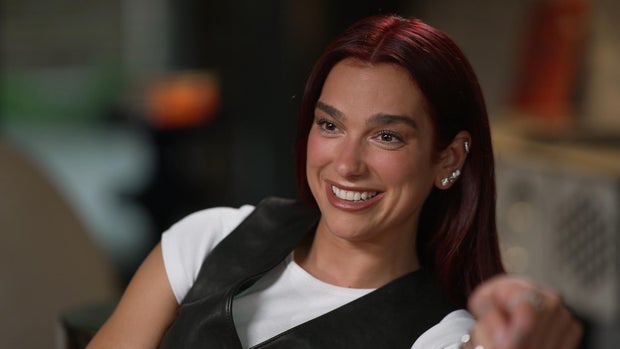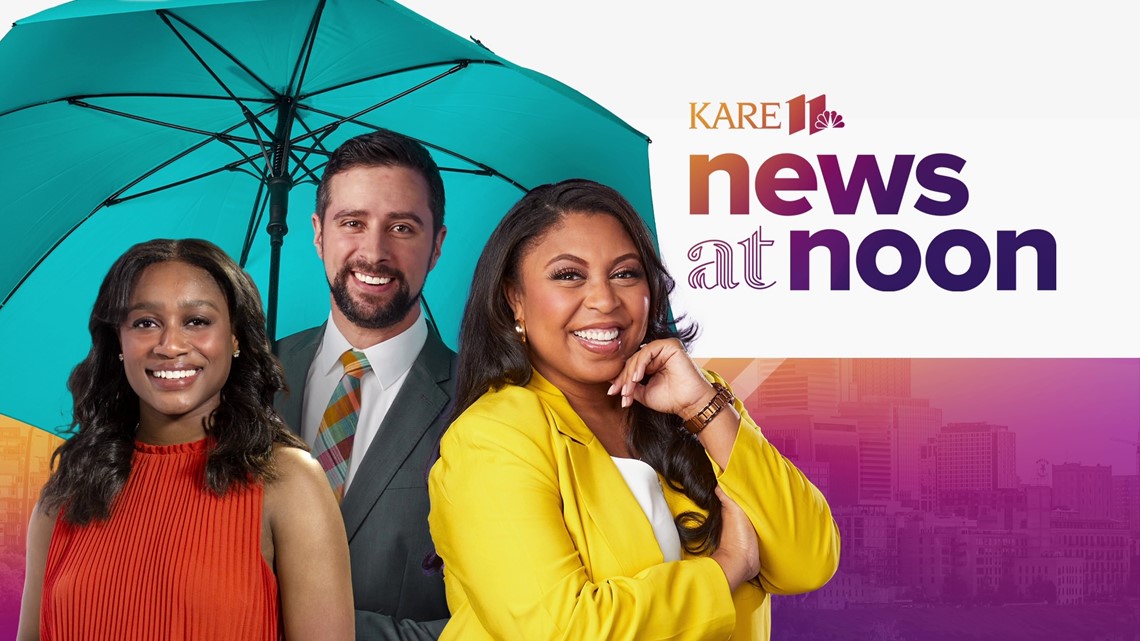CBS News
Dua Lipa’s committed to her music, despite the “stigma around pop” | 60 Minutes

Plenty of teenagers want to become pop stars, but few convince their parents to let them pack their bags and move to another country to try and make it big. That’s what Dua Lipa did when she was just 15 years old. She’d taken some singing lessons, but didn’t know anything about the business of making music. Turns out, she’s a quick study. At 29 she’s now one of the top female recording artists in the world. Take a look at what happened in June when she headlined Britain’s biggest music festival, Glastonbury.. She was singing one of the first songs she released nine years ago. Back then hardly anyone knew who Dua Lipa was. But at Glastonbury, 100,000 people came to see her. They sang along to her every word.
Dua Lipa: Glastonbury as loud as you can! Come on.
Crowd singing: I can be the one!
Dua Lipa: Oh my God, One more time. Louder!
Crowd: I can be the one!
Dua Lipa: I love you guys, you’re making my dreams come true. Louder!
Crowd: I can be the one!
Crowd: I can be the one!
Dua Lipa: It’s unbelievable seeing that many people sing back at you.
Dua Lipa: I couldn’t believe that it was happening in that moment, you know? I’d dreamt about being on that stage my whole life. I’d thought about it, I’d wished it, I–
Anderson Cooper: You’d envisioned it?
Dua Lipa: I’d envisioned it so many times.
Dua Lipa: I’d written down “I want to headline Glastonbury on the Pyramid Stage on the Friday night,” being very specific about the Friday night so I could party afterwards. (laughter)
Anderson Cooper: Wait a minute. So even in your– your dream job it was do Friday night so you could stay at Glastonbury—
Dua Lipa: So I could stay Saturday, Sunday.
Anderson Cooper: And go out dancing in the with and be in the crowds.
Dua Lipa: Absolutely. (laugh) Absolutely, you know? You gotta be specific about your dreams, you know?
60 Minutes
Dua Lipa isn’t afraid to admit…she enjoys a good time…
And that’s what her music is all about..
The songs are fun and flirtatious.
She sings of boy breakups and girl power…
Late nights and dark clubs.
It is pure pop.. and Dua Lipa’s got no problem with that.
Dua Lipa: You’re always met with some kind of pushback as a female artist, if you’re not, like, with a guitar or with a piano, just like, “Oh. She can’t sing. Oh. It’s all processed. Oh. It’s this. Oh. It’s whatever.”
Dua Lipa: I just think there’s just, like, a stigma around– pop music.
Anderson Cooper: But that was the music which you wanted to do from the beginning.
Dua Lipa: Because I loved it. That’s the music that makes me get up and dance.
Don’t let the laid back demeanor fool you.
Dua Lipa has worked hard and come a long way.. to make all this look easy.
Dua, whose name means love in Albanian, was born in London. Her parents had moved there from Kosovo, after the war in Bosnia broke out in 1992. She started singing lessons at 9, but her family returned to Kosovo when she was 11. Four years later she decided to go back to Britain and try and become a pop star.
Anderson Cooper: That was the plan?
Dua Lipa: That was the plan always.
Anderson Cooper: The pitch to your parents was–
Dua Lipa: I’m gonna go to school–
Anderson Cooper: “In order to go to a British university, I need to go to go to”–
Dua Lipa: Yes–
Anderson Cooper: “High school in England.”
Dua Lipa: Yeah. That was the initial pitch.
Her father Dukagjin Lipa is now her manager…
60 Minutes
Anderson Cooper: Did you buy that pitch? (laugh)
Dukagjin Lipa: Of course we did. But– but (laughter) she’s underplayin’ the– the– the fact that– that she was always very mature as a child—
Anderson Cooper: Even at fift– at 15-
Dukagjin Lipa: –e– even at– at– at 15. and yeah, it is a little bit crazy sayin’ like, “Oh, 15 years old she pers– persuaded you to to let her go.” But her maturity and our relationship was–
Anderson Cooper: You knew she could handle it.
Dukagjin Lipa: Of course.
Anderson Cooper: It sounds like you were a very confident 15-year-old.
Dua Lipa: Yeah. I think more confident than I am now, for sure– (laughter)
Anderson Cooper: Really?
In London she immediately started recording herself singing covers of her favorite artists…and putting the videos on Youtube.
This is one of the first ones she made in 2011.
She was living with a family friend, but was pretty much on her own. She skipped school so often she flunked out.
Dua Lipa: Basically I got expelled. And– I remember calling my parents and they’re like, “OK. Well, you did this. Find yourself a school or you’re going to come back to Kosovo ”
She did find another high school and graduated… but decided college could wait.
Her cover songs online had gotten some notice… And just three years after leaving Kosovo….18-year-old Dua Lipa got a record deal with Warner Brothers.
Dua Lipa: I walked in with a dream of, “I want to sing. I wanna perform. I wanna write.” But I had no idea of what comes with it, or what other things I have to do, or even what goes into the promotion of a record.
60 Minutes
While working on her first album.. she began releasing singles .. and performing wherever she could.
Dua Lipa: We were doing really small shows, where the stage was like a step above the floor.
Anderson Cooper: So how many people– like, for your first performances?
Dua Lipa: About 10.
Anderson Cooper: 10. Wow.
Dua Lipa: 10 About 10.
Anderson Cooper: And how many were like friends and family?
Dua Lipa: Well, none. But they all got offered a drink to come and watch. So that was how we got them to come and watch– watch us perform.
Anderson Cooper: It’s like Puppet Show in “Spinal Tap.” It’s like, “Beer and Dua Lipa”–
Dua Lipa: Yeah. It’s– it’s both of those together. Exactly.
That all changed in 2017 when her first album came out and she made this music video in a hotel in Miami for a song called, “New Rules.”
It became her first major hit in America.
The album would earn Dua Lipa two Grammys – one of them for best new artist.
When she sang “New Rules” at the Brit Awards on live TV in 2018 the reviews were positive.. But some viewers’ comments online weren’t. One in particular went viral.
Anderson Cooper: The comment was from somebody that said, “I love her lack of energy. Go girl–”
Dua Lipa: “Go girl.”
Anderson Cooper: “Give us nothing”
Dua Lipa: “Give us nothing.” Yeah. (laugh)
Anderson Cooper: You remember the words.
Dua Lipa: Yeah, yeah, yeah
Dua Lipa: It just spread like wildfire–
Dua Lipa: That I had no stage presence, or I couldn’t perform
Dua Lipa: So I was like, “All right. Well, I’m just gonna prove to you, that I can perform, and I can dance, and I can do all these things.”
60 Minutes
Dua Lipa may have wanted to prove her doubters wrong, but when her second album called “Future Nostalgia” was ready to be released two years later, the timing could not have been worse.
Dua Lipa: My second album came out March 2020. At the very beginning of the pandemic.
Anderson Cooper: Was there any talk of delaying?
Dua Lipa: Yeah, there was. But because I had spent so long working on it, I was like, “This album has to come out.”
With much of the world locked down, it wasn’t clear if anyone would want to listen to dance songs.. Or how she could even promote the album?
Dua Lipa: My whole idea was that, “This is a record that’s supposed to be played in the clubs.” I envisioned myself in the club.
Anderson Cooper: In the producing (laugh) of it, the whole thing is in the club–
Dua Lipa: The whole thing is in the club. (laugh)
James Corden “Dua, how are you?”
Dua Lipa: “Good, how are you?”
Three days after the album’s release. She gamely appeared on the “Late, Late Show With James Corden.” Her home had flooded, and she was renting a small studio apartment.
Dua Lipa: (laugh) Oh my God. And I was having really– (music) like, a bad hair day– (laugh)
Dua Lipa: (laugh) Everyone coming together in their living rooms and their kitchens to, like, make this happen. It’s crazy.
Anderson Cooper: I love that you were in some random apartment.
Dua Lipa: Yeah, so you can see from there how close I am to, like, the cupboards above– the oven, and the like, stovetop.
Anderson Cooper: This is you kicking off the release globally of your album?
Dua Lipa: Globally of my (laugh) album.
The new album was an extraordinary success. Commercially and critically. Billboard, Rolling Stone, and others called it one of the best of the year, and Dua Lipa was dubbed “the Quarantine Queen.”
60 Minutes
Anderson Cooper: It worked out in a weird way,
Dua Lipa: Yeah. It did. It didn’t end up being, you know, the– the night club experience, but it ended up being the kitchen dance parties, and the soundtrack to people’s workouts at home, to kind of keep them sane during that time.
Anderson Cooper: It also gave people, the fantasy of being out at the club–
Dua Lipa: Being out, I–I hope so,
In May she released her third album, called “Radical Optimism.” And is now rehearsing for a yearlong tour in 28 countries.
Dua Lipa: I’m still, like, getting my timing while I’m rehearsing, those first beginning notes, the (singing), they’re really fast. So I just have to, like, practice to make sure that I don’t slow the song down and miss my timing.
In just nine years of releasing music…Dua Lipa has reached a level of success even she never imagined…her songs have been streamed by fans more than 45 billion times.
Anderson Cooper: I saw some writers who’ve said that in your songs– they don’t have a sense of who you are.
Dua Lipa: Mmm
Anderson Cooper: You’re not pouring out your innermost fears and desires and wants.
Dua Lipa: Yeah. It’s something that I just naturally hold back. some people are just so– ruthless with their own private life that they decide to put it all out in a song, because they know that it’s gonna attract people’s attention. And for me, it was always important to make music that people really loved. Not because I was putting someone out on blast, or not because I’m doing it for the clickbait at maybe someone else’s expense.
Dua Lipa’s music may not be controversial, but some statements she’s made over the past few years about Israel have been. She’s called the current war in Gaza genocide, and in 2021 a well-known rabbi took out this full page ad in the New York Times criticizing her.
Dua Lipa: There was a lot of words kinda thrown at me. Things that I don’t believe represent who I am or what I believe in at all. Like I’ve always only ever wanted– peace, really. It’s devastating what’s happening over there. There’s bombs happening between both Israel and Palestine, and children are dying and families are being separated. And it’s just devastating to sit back and– and– and see it happen.
Anderson Cooper: Some people were saying what you said was antisemitic and–
Dua Lipa: Yeah.Yeah.
Anderson Cooper: –and–
Dua Lipa: Yeah. And– and it’s just not– I think it was very unfairly treated by the Times.
Anderson Cooper: Did that experience make you reticent to be outspoken again?
Dua Lipa: No, because it hasn’t stopped me from talking about things that I believe in.
Whatever Dua Lipa’s political or personal opinions may be.. for now ..you won’t find them in her music.
She wants that to be something that will help lift you up..
Get you out.. And maybe.. Just maybe take a spin on the dance floor.
Produced by John Hamlin. Associate producer, Kara Vaccaro. Broadcast associates, Grace Conley and Aria Een. Edited by Michael Mongulla.
CBS News
Ritchie Boys | 60 Minutes Archive

Watch CBS News
Be the first to know
Get browser notifications for breaking news, live events, and exclusive reporting.
CBS News
The significance of U.S. officials in Syria amid search for Austin Tice

Watch CBS News
Be the first to know
Get browser notifications for breaking news, live events, and exclusive reporting.
CBS News
The Iron River | Sunday on 60 Minutes

Watch CBS News
Be the first to know
Get browser notifications for breaking news, live events, and exclusive reporting.


